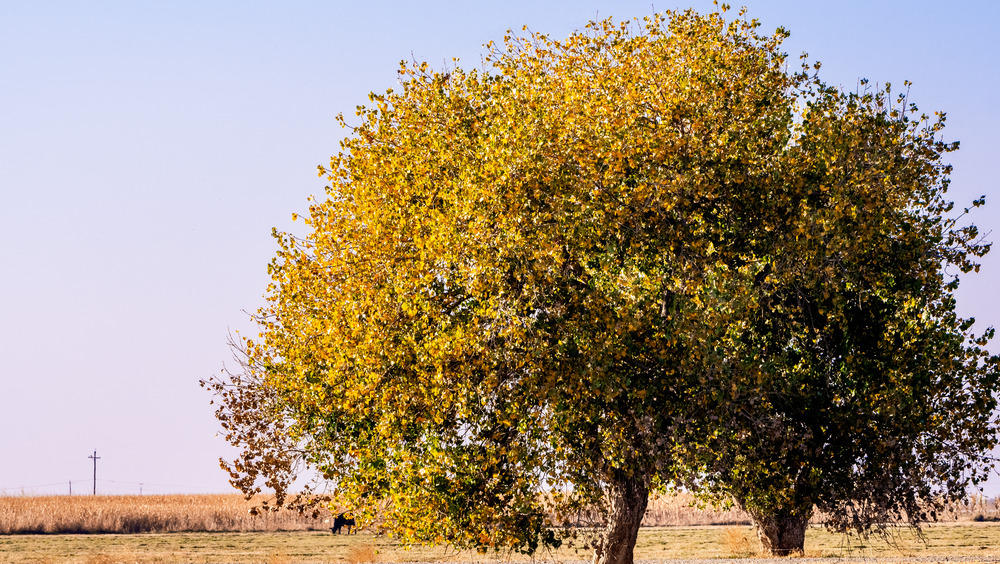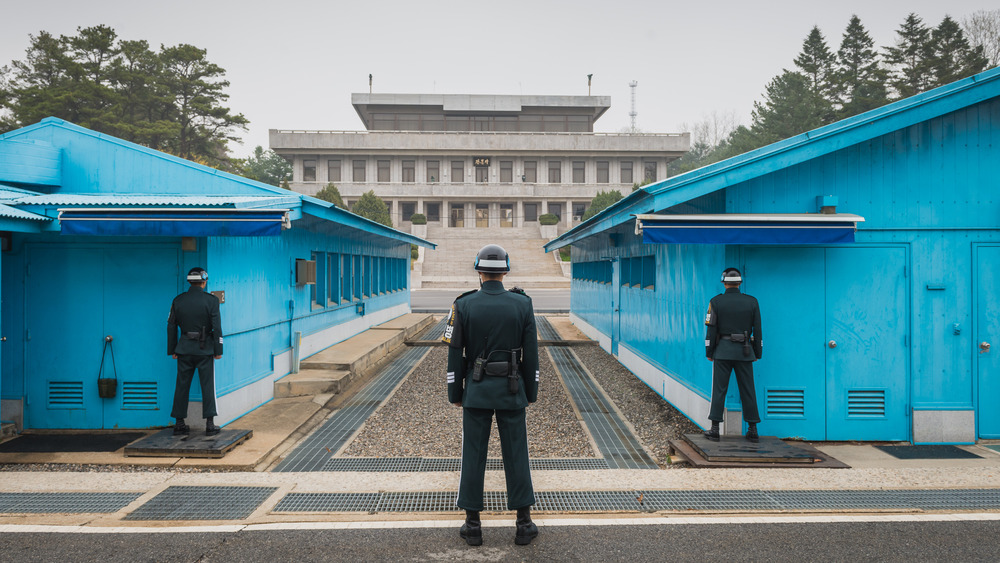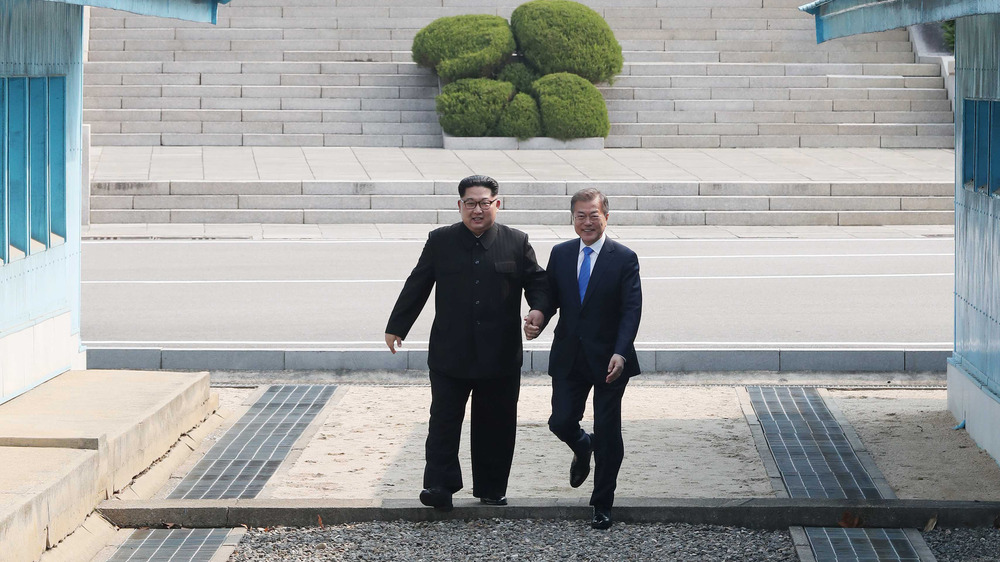How A Tree Nearly Resulted In A Second Korean War
The Korean War split the Korean peninsula in half. Even though the war officially ended in 1953, vestiges of the conflict remain. One of the most prominent reminders of the war is the joint security area within the demilitarized zone, or DMZ.
Entering the DMZ, you can feel the tension in the air. After all, in this place, the Korean War hasn't ended. On either side of the security area are guards from each country. Surrounding the DMZ are heavily patrolled fences. Sometimes you might feel like taking the wrong step will result in a full-blown battle. And it did almost happen, thanks to a tree in the DMZ.
It sounds like an improbable story, but a tree almost restarted the Korean war and caused tensions between the two Koreas and the United States to come to a head. It involved not just a tree, but an ax murder.
The Atlantic wrote that South Korean and American soldiers would often taunt the North Korean military across the bridge that separates them. The bridge was called the Bridge of No Return, since many people who cross it can never go back. The North Koreans played the game, too. They'd send trucks barreling down the bridge pretending to want to hit whoever is on the other side. Such actions are frowned upon today, but in the 1970s, no such restrictions were put in place. In 1976, the games each side played turned deadly in what the BBC called a gardening job.
A bloody gardening activity
It was August 1976, and the American and South Korean troops began their day. US military Captain Arthur Bonifas and his deputy, First Lieutenant Mark Barrett, headed towards the Bridge of No Return, the BBC said. Their goal was to prune a poplar tree in full bloom that wass blocking the view of a United Nations observation post. It was a blind spot which the enemy could use to their advantage.
This was not the first time Bonifas attempted to prune the tree. According to Quartz, the North Koreans believed the tree had been planted by their leader Kim Il-Sung. The tree, though, was a liability. So Bonifas, Barrett, and a team of laborers were determined to fix things, said The Atlantic. They started to work on the tree when North Korean forces suddenly told them to stop. Cut down one more branch, and they will die, a North Korean captain, Pak Chul, said. Bonifas ignored the threats and turned his back to them.
He didn't see the North Koreans begin rolling up their sleeves. Chul then yelled to his men, "Kill!" They started to bludgeon Bonifas, beating him with axes they grabbed from the laborers. They chased after Barrett, who began running towards the UN post to call for help, and smashed him up. The two died. Other Americans and the South Korean laborers were injured.
Bonifas was just three days away from leaving Korea, and Barrett has just arrived in the country.
The US thought about bombing North Korea
When word reached Washington, D.C., the first reaction was disbelief. How had two American soldiers let the North Koreans come so close to them and not pull out their pistols? Secretary of State Henry Kissinger wanted to bomb the North Koreans in retaliation. He wanted to make sure Chul and his men would be killed. Kissinger was overruled.
Meanwhile, the tree still needed to be pruned. In a massive show of force, the Americans and South Koreans drove to the tree in several truckloads. They carried massive chainsaws and even rigged explosives nearby just in case. Special forces commandos were on high alert. The North Korean military started setting up their weapons. But this time, there was no bloodshed. The Americans cut down the tree's branches, leaving only the trunk. In a symbolic show of cooperation, a piece of the tree was handed over to North Korea.
On April 27, 2018, another tree was planted in the DMZ. CNN reported that South Korean President Moon Jae-in and North Korean leader Kim Jong-un symbolically planted a pine tree from 1953 with soil from both countries. A plaque speaking of peace and prosperity was placed in front of it. Many of those watching, though, recalled the last time a tree played such an important role in a war that may have ended, but we still feel the ramifications.


